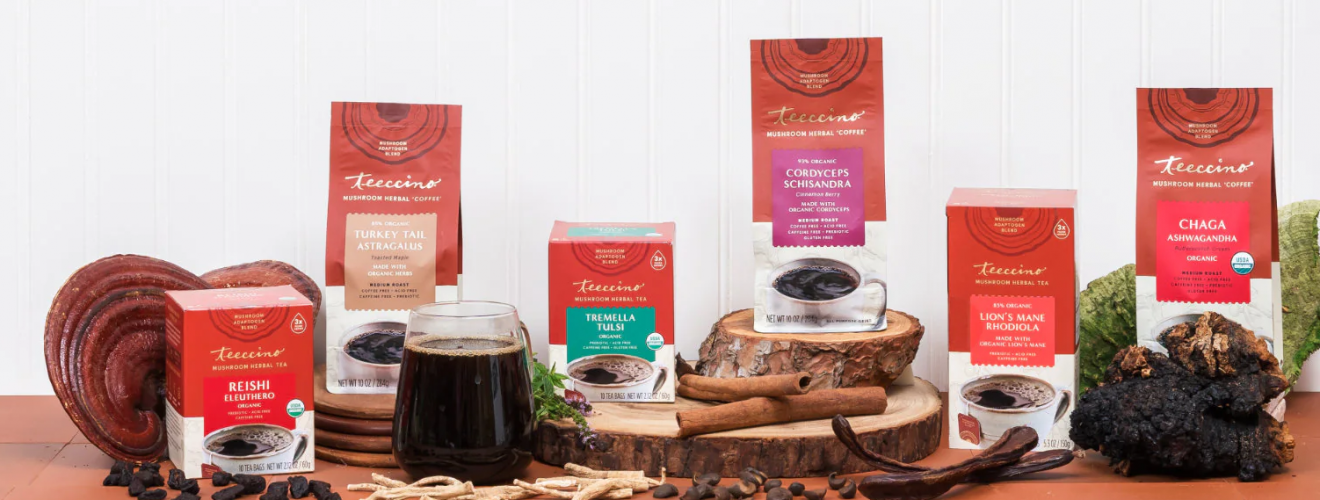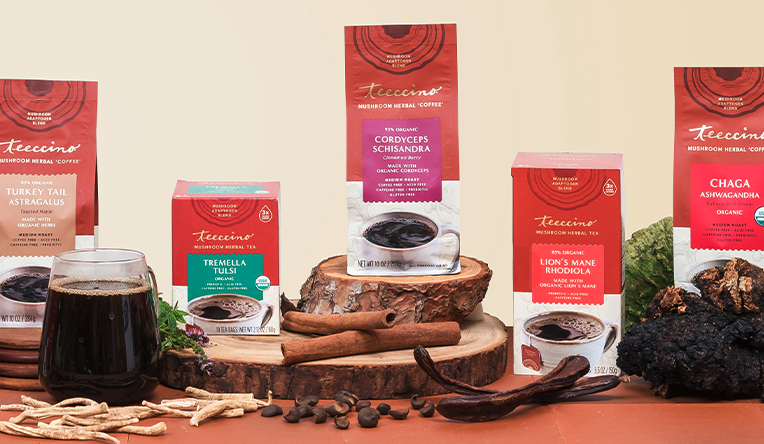Exploring the Health Benefits of Mushroom Herbal Tea

Gone are the days when your tea cabinet housed just Earl Grey and chamomile. The latest wellness trend brewing on the scene is mushroom herbal tea, a tantalizing infusion of earthy tones and potential health benefits. These teas aren’t your typical mushroom soup companions, however. They harness the power of specific fungi known for their medicinal properties, often blended with complementary herbs for added flavour and function.
But before you swap your morning latte for a lion’s mane brew, let’s delve into the science behind the mushrooms. These curious kingdom members are packed with adaptogens, a unique class of compounds that help the body adapt to stress and maintain balance. These potent chemicals boast a range of potential health benefits, from immune system support to cognitive function enhancement.
So, let’s raise our ceramic mugs and explore the exciting world of mushroom herbal teas:
- Chaga: This dark, gnarled mushroom thrives in harsh environments, and its resilience translates to your immune system. Chaga is rich in beta-glucans, which stimulate white blood cell production and act as natural antibiotics. Studies suggest it might even offer protection against cancer and heart disease.
- Reishi: Revered in Traditional Chinese Medicine for centuries, Reishi mushrooms are known as the “King of Mushrooms.” Rich in polysaccharides and triterpenes, they may enhance immune function, reduce inflammation, and combat fatigue. Think of it as a natural bodyguard in a steaming cup.
Mind Matters:
- Lion’s Mane: This spiky fungus resembles a, well, lion’s mane, and its potential benefits are equally impressive. Research suggests it can stimulate nerve growth factor (NGF), a protein crucial for memory, learning, and focus. Lion’s mane might also reduce symptoms of mild cognitive impairment and anxiety.
- Cordyceps: These parasitic fungi, often found growing on insects, pack a potent punch for energy and endurance. Cordyceps might increase ATP production, the fuel for cellular energy, potentially improving exercise performance and reducing fatigue. It’s a natural pick-me-up without the jitters of coffee.
Beyond the Brain and Immune System:
- Maitake: Also known as “hen-of-the-woods,” this beautiful mushroom boasts anti-inflammatory properties that may benefit gut health and reduce arthritis symptoms. Enjoy a cup after a workout to soothe sore muscles and promote recovery.
- Turkey Tail: This fan-shaped fungus isn’t just for Thanksgiving dinner. Studies suggest it can help modulate the immune system, potentially supporting gut health and offering cancer-fighting properties. Consider it a delicious way to nourish your microbiome and potentially boost your defenses.
Choosing Your Brew:
With so many varieties to choose from, finding the perfect mushroom tea can be overwhelming. Consider your specific needs and preferences:
- For immune support: Opt for blends with chaga, reishi, or maitake.
- For cognitive function: Lion’s mane and cordyceps are your go-to.
- For energy and vitality: Cordyceps and chaga shine in this department.
- For gut health: Look for tea blends containing maitake or turkey tail.
Remember, mushroom teas are dietary supplements, not medications. Consult your doctor before adding them to your routine, especially if you have any underlying health conditions or are taking medication. Start with a low dose and gradually increase as tolerated.
Taste Test:
Mushroom herbal teas are not your typical black or green varieties. Expect earthy, woody, and slightly bitter notes, depending on the blend. Some find the taste acquired, while others enjoy its unique character. Adding sweeteners like honey or natural fruit extracts can enhance the flavour. Don’t shy away from experimentation – find a blend that suits your palate.
The Verdict:
While research on mushroom herbal teas is still in its early stages, the potential benefits are promising. These flavorful infusions offer a natural way to support your immunity, cognitive function, energy levels, and overall well-being. So, ditch the sugary sodas and brew yourself a cup of mushroom tea. You might just discover a delicious and potent path to better health.
Beyond the Brew:
Remember, mushrooms are not just for your mug. These versatile fungi can be incorporated into your diet in various ways:
- Sauteed, roasted, or grilled as a savory side dish.
- Added to soups, stews, and stir-fries for an earthy depth of flavour.
- Blended into smoothies or powdered and mixed into your morning oats.
Whether you prefer your mushrooms steamed or sauteed, incorporating them into your diet can contribute to a healthy and delicious lifestyle.
Final Thoughts:
Mushroom herbal tea offers a natural and flavorful way to explore the potential health benefits of these fascinating fungi. From immune support to cognitive function, there’s a mushroom tea blend out there










